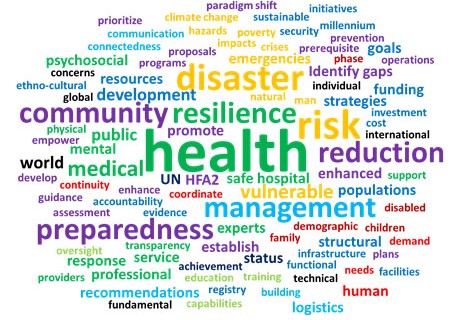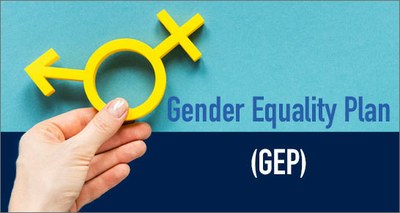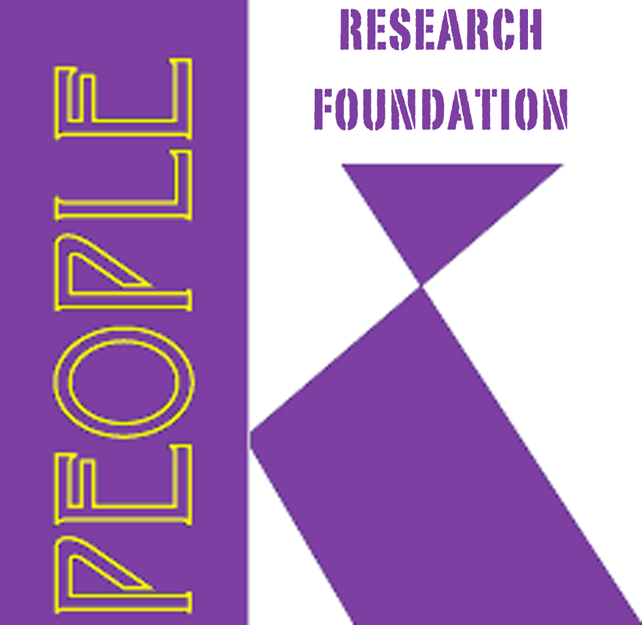
Here You can have a look at our mission!
KPEOPLE Research Foundation is a non-profit research organization based in Malta, committed to promote the study, scientific research, technological development in the area of social innovation and community resilience, within the fields of:
-natural disasters effects mitigation,
-social inclusion,
-cultural heritage,
-well-being,
-ethics in metaverses,
-friendly government.
KPEOPLE Research Foundation has been spun off by KPEOPLE LTD in 2017 to be a research dedicated organisation.
Kpeople ltd has been established in 1998 (www.kpeople.com), specialized in Grants and Innovation Management, providing support services to private and public organizations in innovation processes, technology transfer, and funding for research, development and innovation.
KPRF Vision
For the next 5 years [2019-2024] KPEOPLE Research Foundation will be working on three main keywords: COMMUNITY RESILIENCE, CULTURAL HERITAGE CONSERVATION, DISASTERS MITIGATION, SMART GOVERNMENT, SOCIAL FINANCE and VULNERABLE PEOPLE INCLUSION.
Over the years, the experience gained on supporting national and international bodies, has led us to dialog with other sectors such as economic, law, public policies, communication, and psychology, and to realize the importance of a multidisciplinary approach to the concept of risk.
KPRF aims at proposing an Innovation Strategy in research projects adding greater attention to the dissemination of knowledge and ideas exploitation, aiming to increase the awareness level on communities, consolidating improved community behaviours, both in political decisions and individual choices.
From a strictly scientific and human perspective we are focusing social science and humanity policy improvement to enhance all citizens well-being also in critical situations.
The foundation is also aimed at addressing issues related to social finance including Social Impact Bonds, Social responsibility and volunteering with non-monetary circular economy challenges supported by the use of leading edge or incoming technologies such as blockchain and machine learning.
Another priority is to support the design of policy able not only to reduce risks for the cultural patrimony but to convert those risks in axes around which important economic and social changes revolve and thus, constitutes an increasingly fundamental variable for their conservation and social value, especially within a context of climate change.
Kpeople Research Foundation, based in Malta, works mainly in research and on field projects aiming at improving the overall wellbeing of citizens starting from those with disadvantages.
Kpeople Research Foundation is capitalising the Kpeople group experience in relationships between Public bodies, NGOs and private organisations investigating new paradigms in horizontal subsidiarity approach development.




Kpeople – History
Based in the UK but operating throughout Europe KPEOPLE has developed a substantial reputation for supporting a wide range of different types of organisation (public and private), to introduce more effective and efficient ways of working.
A particular feature of our approach involves making the best possible use of the whole range of emerging technologies that are becoming available at an ever-increasing rate but which can lead organisations along expensive and unproductive paths.
Our philosophy is to identify where new technologies can help organisations to work better. We never allow the technologies to be the driver or try to fit working practices around them.
Since it was established KPEOPLE has supported over 100 organisations in various business sectors to improve their performance in a wide variety of ways.
KPEOPLE worked extensively at Government level specially within UK, Italy and France being heavily involved in the development and implementation of a number of national policy initiatives. An extensive experience has been carried out in disaster recovery, community engagement, e-government and e-democracy with particular emphasis on electronic voting systems.
Over the past 21 years KPEOPLE have participated eleven international R&D projects funded by the European Commission in various areas related to social challenges in a reflective society and the Foundation is now going to start a new one in the area of Safety for citizens and first responders facing disasters.
As a result of the contacts we have made through all these activities we have now developed a substantial European partner network currently working in UK, Spain, Portugal, Malta, Germany, Austria, Serbia, France, Italy, Sweden, Finland and Poland.

GENDER EQUALITY PLAN
Background
Kpeople Research Foundation is a not-for-profit organisation established in January 2018. KPEOPLE Research Foundation is a non-profit research organization based in Malta, committed to promote the study, scientific research, technological development in the area of social innovation and community resilience, within the fields of disasters effects mitigation, social inclusion, cultural heritage, well-being and friendly government.
With this Gender Equality Plan (GEP), KPRF seeks to address gender inequalities and imbalances in R&I through the development and implementation of a context-specific GEP, formalising a set of actions aiming at a long term institutional transformation.
The design and implementation of this GEP will tackle the main issues of gender equality in research, following the advice of the Community of Practice, a community composed by healthcare staff, researchers, grants offices staff with a shared interest in promoting gender equality.
KEY POINTS
This GEP is a public document.
This GEP is an official document, approved by the Legal Representative and publicly available on KPRF website.
The aim of this GEP is to acknowledge KPRF commitment to gender equality.
Dedicated resources have been committed to the work on the GEP. KPRF Director appoints every two year a staff member as Equality Coordinator, responsible for the coordination of the activities related to the implementation of the GEP.
The Equality Coordinator will ensure that all KPRF staff members are actively involved in the actions of the GEP.
Data collection and monitoring processes are in place
KPRF supports a clear and transparent data collection in all processes related to internal staff recruitment and to funded research teams. Some data, in compliance with the EU GDPR, may not be published.
Training and capacity building
KPRF promotes and organises events for training and capacity building on the areas covered by the GEP for the regional scientific community and its partners. All staff is involved in the implementation of the GEP.
KPRF management is committed to promote actions of awareness raising among staff members and to offer special trainings.
Main Objectives Building on the experience acquired throughout the TARGET Project, and in line with the new requirements of Horizon Europe Framework, specific thematic areas have been identified:
- Work-life balance and organisational culture;
- Gender balance in leadership and decision-making;
- Gender equality in recruitment and career progression;
- Integrating the gender dimension into research content;
- Measures against gender-based violence, including sexual harassment.
For the full achievement of gender equality in R&I, both a bottom-up and a top-down approach are necessary. The former indicates the support to organisations and researchers to address any gender imbalance, and the latter refers to the support to structural changes towards gender equality.
All areas are of equal importance for KPRF and can be viewed as priorities. The Foundation aims at providing support to the organisations it funds to remove any existing barriers to gender equality, especially addressing the factors that limit equal participation and advancement of individuals. All activities are presented according to five thematic areas, which are interconnected.
Work-life balance and organisational culture
Incorporating gender–related issues into internal procedures and regulations Why? Internal procedures are operational documents that describe the modus operandi of KPRF, according to the different roles. Clear, well-written and up-to-date procedures support transparency and accountability. Goals: To provide an institutional recognition of the non-discrimination principle. How? A careful analysis of internal procedures is carried out. Indicators: Nr. of relevant procedures modified to include gender equality issues. Output: Ethics code and recruitment procedures revised.
Providing the institutional GEP to newly recruited staff as part of the starting pack Why? It is fundamental that all new recruited staff members are aware that gender equality and inclusiveness are the core of KPRF organisational structure. Goals: Increasing general awareness of gender equality and anti-discrimination principles in the organisation. How? Providing a copy of the GEP to the newly recruited staff, to be signed along with the ethics code at the moment of the start of the contract. Indicators: Nr. of staff members who are provided with a copy of a GEP Output: Inclusion of the GEP in the induction pack for newly recruited staff members.
Promoting work-life balance as an improved approach to work,
Reaching a balance between work and personal life can lead to significant improvements in productivity, a lower risk of burnout and a greater sense of well-being. Goals: Adopting an internal procedure for remote work to allow all staff member to benefit from it.
Establishing a procedure regulating remote working. Indicators: Nr. of staff members benefitting from remote working arrangements. Output: The remote work arrangements have demonstrated to be extremely useful and well managed by all staff members.
A new regulation is being elaborated
Gender balance in leadership and decision-making
Elaborating a Position Paper on gender equality in research, with a focus on Gender Equality Plans and gender medicine.
It is fundamental to raise awareness on the topic of gender equality in research and the importance of Gender Equality Plans, especially since they are becoming an essential condition to apply for funding. Also, it is important that the scientific community realises that gender equality is also a critical condition for excellent research.
Goals:
Raising awareness on gender equality issues and providing guidance the new GEP requirements. The elaboration of a GEP also requires the analysis of a wide amount of data on gender representation, that can lead to a reflection of the leadership structure of an organisation.
Drafting a document (policy paper) which raises awareness among researchers, as well as the wider scientific community and the regional stakeholders.
Supporting an open and transparent data collection on gender representation in the life sciences organisations.
Indicators: Nr. of downloads/visualisations of the position paper.
Output: Publication of the position paper in order to reach a large audience.
Gender equality in recruitment and career progression
Developing a tool for the internal monitoring of gender related data and indicators, Collecting data on gender distribution can help reflecting on decision making processes, impacts on implementation of different activities, career progression for each staff member.
Goals:
Monitoring gender distribution in the different staff category and adopting corrective measures if needed.
Creating a monitoring tool constantly updated that reports data on the role, the level of career, the type of contract of KPRF staff. This document is managed by the administration officer and is available in a secure online folder.
Indicators: Constant update and monitoring of the tool.
Output: A management tool to monitor the gender distribution among all roles in KPRF.
Establishing unbiased and transparent progression and development paths
Establishing clear, unbiased and transparent objectives, based on the different roles, for each staff member, supports the engagement of employees. In addition, it offers the opportunity of a motivating conversation with the employer, that creates clarity about employees’ performance and objectives.
Goals:
Establishment of transparent criteria for progression and promotion.
Approving an institutional procedure that establishes clear criteria to define the objectives, the evaluation, the reward.
Indicators: Correct and regular implementation of the procedure by KPRF management.
Output: Approval of a procedure establishing objectives for each role. The achievement of the assigned objectives can lead to a financial reward.
Integrating the gender dimension into research content
Organisation of a Community of Practice (CoP)
In an area as important and encompassing as gender equality, especially in research, no organisation can work alone.
This is why the creation of a CoP is necessary to gather stakeholders to work towards specific goals, exchanging ideas, discussing, identifying needs and challenges. The work of a CoP can lead to the elaboration of gender equality plans, strategies, actions, new forms of cooperation, and to the exchange of a plurality of perspectives.
Goals:
The organisation of a Community of Practice to exchange experiences, to develop knowledge, for capacity building and know-how for gender equality.
Working with a CoP, on different topics, to build relationships, learn, develop best practices and identify areas of actions. Indicators: Nr. of events (online/in person) organised with the CoP. Output: Active participation in all meetings by stakeholders and KPRF staff.
Increased interest among the scientific community and the stakeholders, that can lead to grant applications.
Providing support, as Research Funding Organisation (RFO), to women’s careers in science Why? Data show a limited number of women in top management positions, both in academia and in healthcare institutions. This is also due to major difficulties in advancing in the career. Although this is changing, more needs to be done to increase the participation of women in research, encouraging their participation in grant applications and in research projects. Goals: Supporting women’s careers in science, increasing the number of women PIs, encouraging a more gender equal research.
Collecting data on gender representation among PIs in funded projects
To verify the impact of gender equality measures applied by KPRF, it is necessary to pay attention on sex-disaggregated data on number of applicants, number of grants allocated, success rate of applicants. Goals: Analysing of gender gaps in research funding, additional and tailored actions can be drafted and implemented to promote gender equal participation.
Creating a database to keep track of gender representation among PIs in applications and in funded projects. Indicators: % of women PIs, monitoring of any changes in response to new actions implemented.
Output: A database, collecting all projects results disaggregated by sex, has been created and it is constantly updated.
Collecting information on gender policies in place in the applicant and funded institutions
In light of the growing importance of gender equality in research, also given the upcoming requirements of a GEP to apply for EU funding, it is important to monitor how gender policies are adopted and implemented in the organisations and institutions who apply for funding to KPRF.
Goals:
Monitoring the development of gender policies in the stakeholder organisations applying for funding to KPRF. Awareness raising among the scientific community through presentations of the Calls and the results of the survey.
Collecting data on gender representation in research and healthcare institutions through a survey.
Measures against gender-based violence, bullying and harassment, including sexual harassment
Adopting specific policies to contrast gender-based violence, bullying and harassment, including sexual harassment
Gender violence, as well as situations of bullying and harassment, are complex issues that occur in different situations and environments, including research organisations and research funding organisations. Often, these issues are not properly acknowledged or addressed, leading the victims to feel more isolated, let alone discriminated.
Goals:
Raising awareness on these issues within KPRF staff and among the stakeholder organisations (cultural autorities, creative cultural institution, first responders, research institutions, universities, policy makers), introducing policies to tackle these issues into internal documents and procedures.
Including a gender perspective in internal policies and in the actions, including training, towards the Community of Practice and the scientific community, to prevent situations of gender-based violence, including sexual harassment, mobbing and bullying.
The General Director, with the support of the Equality coordinator, is required to ensure that all staff and collaborating institutions are aware of KPRF Gender equality policies.
Indicator: Update of the internal regulation on the human resources management to include a definition of gender-based violence, bullying and harassment, including sexual harassment.
Output: Dissemination of the updated human resources management regulation.
All episodes of gender-based violence, bullying and harassment shall be reported to Director (or otherwise to the Board of Directors, should the Director be directly involved) who is in charge of remedying a possible situation, including by establishing formal disciplinary actions.
The Foundation understands the importance of monitoring as a tool to assess if positive changes are taking place, as the result of the development of new policies and actions and as a self-reflective process. Monitoring also works as a tool to support effective actions and commitment, which increases legitimacy and creates accountability. The CoP can further contribute to create a favourable environment for the effective
